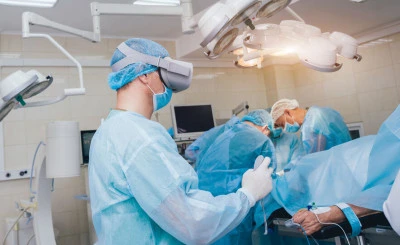
One of the first industries to embrace advanced technology was the healthcare industry. We see this time and time again, with the most recent application coming from a procedure completed at the Roth McFarlane Hand and Upper Limb Center at St. Joseph’s Hospital in London, Ontario, Canada.
Dr. George Athwal has been an active proponent of the use of digital 3D holograms to increase surgical precision for shoulder replacement patients. The goal is to not only reduce complications and malpractice issues but also ensure the best fit and longevity for the patient.
And with approximately 7 million patients a year suffering from surgical procedures, according to the Harvard Business Review, using new technologies to improve outcomes should be a welcome development. In fact, Dr. Athwal was the first surgeon in Canada to perform what is now called a “mixed reality” surgical procedure, and only the second one in the world.
Mixed reality surgery refers to the melding of real-world tools with virtual technologies. Dr. Athwal turned to a Microsoft HoloLens 2 to create his technique. Dr. Athwal was able to provide command and hand movements using a 3D representation of the patient’s anatomy. As he manipulated the machine, the surgical machine programmed to his movements completed the surgery.
The true innovation here is that Dr. Athwal can use the technology to preplan the surgery. This way, when it comes time to complete the actual surgery, he has a blueprint he can follow almost to a tee, further reducing complication risk.
Dr. Athwal was fortunate to have the support of St. Joseph’s Health Care London, which is a leading academic healthcare center focusing on disease management, medical imaging, mental healthcare, rehabilitation and specialized forms of surgery. Now, these methods will only continue to spread as physicians like Dr. Athwal prove their effectiveness in a clinical setting.
Advanced technologies in healthcare, whether they come from the realm of virtual reality or diagnostic data management, are changing the way surgeons, doctors and nurses do their jobs. In the end, these changes will benefit the patients themselves most of all.
And do you know who stands at the forefront of these technologies? The Learning Network.
Through our family of companies, such as ICOM Productions, which focuses on 3D learning and development, and Pathways, experts in learning management systems (LMS) and virtual reality, we stand at the forefront of the advances we see today coming out of Canadian hospitals and hospitals around the world.
And we have to admit, we’re pretty proud to be part of this future.




